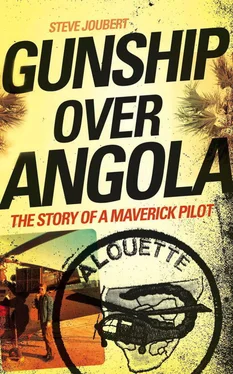For some reason, the first thing that profoundly disturbed me was the sight of two transparent plastic pipes running from under the sheets and into her nose. Then I saw that her lips were slightly parted and that the plastic tube from a ventilator leading into her mouth was distorting the left side of her face. I could also hear a faint bubbling sound, but I couldn’t work out where it was coming from.
But the thing that shattered any hope I may have harboured for her return to vitality was Mom’s half-opened eyes.
They gave forth nothing.
They were glazed and blank, and I knew then that her soul was already elsewhere. Slowly, like being pulled into a dark cave, the dullness in those eyes began to draw me in until it held my complete attention.
I stood there, unable to resist being consumed by the nameless thing that had invaded the shell of the exquisitely beautiful woman who’d given me life, who’d always known instinctively when I needed her and into whose loving embrace I’d been so utterly sure I could escape whenever things got too tough.
I found myself fighting a black, looming wave that grew so rapidly that it blocked out everything and everyone in the room. I felt myself struggling not to scream, to rant, to rage. I wanted to thrash the doctors who’d failed to fix her when she’d needed them most, and to rail at my dad, who couldn’t stop this cowardly faceless thing from stealing her from me.
I wanted to obliterate anyone I could blame for causing the agony that was tearing me apart.
At the height of my fury, I found myself suddenly standing a short distance away, observing the unfolding scene. Then, in a moment of great light and clarity, it suddenly struck me that my furious need to hold the whole world culpable for this terrible, terrible loss should rather be directed inwards.
I wasn’t ready to do that.
So I turned and ran away.
*
In the days that followed, surgeons told the family that the stroke had impacted the motor centre of Mom’s brain, and that her prognosis was extremely poor. There was no hope of her ever again regaining consciousness. She would be comatose for the rest of her days.
I found it difficult to visit when other people were with her, and so I started going alone and late at night. I’d hold her hand and talk to her, hoping against hope that she was listening. I’d stare intently into her eyes or just wish vainly for some flicker of reaction, some recognition, some sign of life.
But there was none.
At just after 05h00 on the fourth day after our world had stopped turning, I woke up after another restless night. I immediately became aware of a sense of foreboding
Mildly perturbed, I nevertheless decided to start the day a little earlier than normal. I showered, shaved and dressed before making a cup of coffee and sitting down at the little desk that served as my dining table.
At just before 06h00 I heard Desiree’s car pull into the driveway.
I heard her get out and the car door close.
Then I heard a subdued conversation between her and Mrs Bradley, who’d gone out to meet her.
I heard them walk up to my front door and rap softly.
I opened the door. Both women stood there, tears coursing down their cheeks.
At 05h15 that Thursday morning the embolism had moved into Mom’s brain and doused the last flickering vestiges of her life.
She was only 45.
*
Throughout those indescribably sad days that followed, first notifying friends and family, then making the funeral arrangements, and finally the awful bruising trauma of Mom’s cremation service at the Rebecca Street Chapel, the emotional paralysis in me held firm. It allowed me to function, albeit like an automaton.
I have no detailed memories of that time other than of the tsunami of shock and grief that drenched everyone. The depth of sadness at her passing stunned friends, family and associates. It was born of her unbridled joy for life, of her smile, which could soften even the hardest of hearts, and of her selflessness, which noticeably affected everyone she ever encountered.
I was around 16 when I’d found a diary entry that she’d written on her 16th birthday, the day she had rebelled against the selfish summons of her own mother to leave school to come back to Brakpan and work. I cannot recall the exact wording, but I do recall her making a promise to herself to the effect that ‘I will never treat my own children like this, NEVER. I will love and support them with all my heart so that they never have to experience the feelings of pain, rejection and sorrow that I feel right now.’
She was unwavering in living out that promise, to the day she died.
As her funeral ended, the minister who’d performed the service approached our family – my dad, my gran, my brother, my sister and me. He offered words of comfort to each of us in turn. As he did so, I watched myself go through the motions of a grieving son, from a short distance away, just like I did when things got hairy in the bush.

My mom, Inez Ursula Joubert (née Wilson), 18 July 1934 – 24 April 1980
I remember thinking that I should be crying, but, frustratingly, I couldn’t find the button that would open the floodgates to my tears. When the minister reached me, he looked into my dry eyes, leant forward and embraced me. As he did so he whispered, ‘Let go, Stephen. Just let go. You must not hold back the feelings inside. If you do so, you will hurt yourself and all of those around you. Let go, Stephen. Please let go.’
‘I’m fine,’ I said.
Ten years later, I was still occasionally picking up the phone to call my mom.
8
Escalation and intensification
In the weeks and months that followed, I did the only logical thing that I knew and buried myself in my work, spending more time in the bush than I did at home.
At Ondangwa, I’d make sure that I was in the vanguard of helicopter operations and thus spent considerable time away from the relative comforts of the base, at one stage even spending a few nights in a hole dug into the barren soil somewhere in southern Angola.
My recall of events during this time is not very sharp and some notable incidents are lumped together in my memory, adversely affecting chronological accuracy. However, I do remember that in June 1980, I went to Windhoek for a short tour of two weeks. I had barely unpacked my bags when a call came through for me to pack a small overnight bag and wait to be taken to Eros airport to catch a flight to an undisclosed destination.
On arrival at the airport, my flight engineer, Douw Kuhn, and I were bundled aboard a Beechcraft Queen Air and flown to AFB Ondangwa, which I’d left two weeks previously. When we arrived there later that night, I was told that an Alo III gunship had been shot down that afternoon about 70 kilometres inside Angola, and that the crew were missing and presumed killed. The flight engineer and I were to replace them on the operation that was already well under way.
The crew of the ill-fated Alo gunship, Captain Thinus van Rensburg and flight engineer Sergeant Koos Cilliers, were colleagues from 17 Squadron at AFB Swartkop. Koos lost his life in the incident, while Thinus, despite fracturing his spine, managed to evade capture and walked about 30 kilometres to safety during that night, presenting himself to South African forces entrenched near Cuamato, in southern Angola, the following morning.
The suggestion that I pack an overnight bag was somewhat optimistic, and it was a full seven to ten days later that the operation ended. The chopper crews returned to Ondangwa, and Douw and I were urged to try to scrounge a lift on any transport aircraft going in the direction of Windhoek. Rather than wait for a ‘commando’ (civilian volunteer) aircraft to be organised to get us back to Windhoek, Douw and I, still in our fragrant ‘overnight’ flying overalls, managed to hitch a ride on a 44 Squadron Dakota going that way.
Читать дальше













